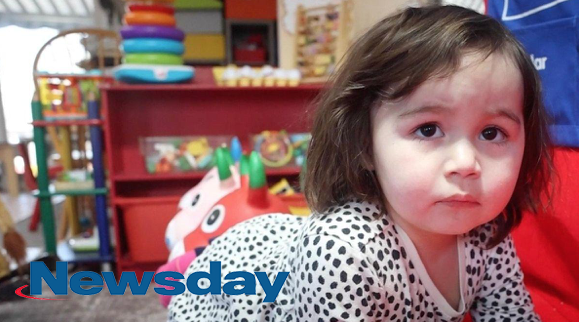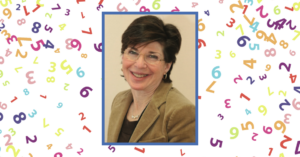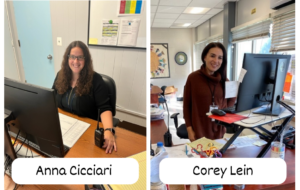Newsday Published on 4/5/23
Hundreds of Long Island preschoolers with disabilities are on waitlists for special education programs, a growing problem that has alarmed school officials who coordinate services for them.
On the Island, the wait to get into such programs has been as long as a year, school officials said. Demand has far outpaced supply: The enrollment for some programs for the upcoming 2023-24 school year was filled as early as December, something that Robin Newberg, coordinator of Middle Country School District’s universal prekindergarten programs, said was “unheard of.”
“We have great difficulty in placing our [preschool special education] kids. So much so that I’m getting very nervous about it,” said Mineola schools Superintendent Michael Nagler. “There are kids sitting at home right now that should be getting services that aren’t, which infuriates me.”
The services Nagler referred to is a special class — a small program, typically with 6 to 12 students with disabilities — under the guidance of at least one teacher and one teaching assistant, and generally run by state-approved private providers.
WHAT TO KNOW
- Hundreds of Long Island preschoolers with disabilities are on waitlists for special education programs, a growing problem that has alarmed school officials.
- Such programs are crucial because they address children’s developmental delays and better prepare them for later grades.
- Educators and providers blame the backlog on factors from rising need to pandemic disruptions, to low reimbursement rates from the state.
Educators and providers blame the backlog on a number of factors, including rising need, pandemic disruptions and low reimbursement rates from the state to providers.
The state Education Department, which oversees preschool special education, in a recent statement acknowledged a flawed rate-setting system and said it and the Board of Regents have advocated for “significant” funding increases for the programs.
Intervention for special education children is particularly important because delays could have serious consequences for their development, often requiring more support in later grades, educators said.
“If they’re not getting the early intervention at 1, or 2 or 3, by the time they get to us, it’s so severe … that we have to kind of play catch-up,” Newberg said. “To make it even worse, those special classes where they should be appropriately placed are full; we can’t get them in there.”
The hunt for a spot
Preschool special education, though overseen by the state Education Department, is administered locally by Nassau and Suffolk counties. Funding for programs and services is provided by the state and municipalities, but school districts play a key role.
Every school district has a panel known as the Committee on Preschool Special Education for each eligible child, typically from ages 3 to 5, who lives in the district. That group — which includes the child’s parent, a special education teacher or related service provider — puts together a customized plan known as an Individualized Education Program, or IEP, and recommends services.
Jacqueline Ruggles, a school psychologist in the Riverhead district, has been on the hunt for four months for a program for Reagan, who turns 3 in June.
Reagan was eligible to be placed into a preschool program in January, after she moved with her mother, Jessica Almonacid Acevedo, from Queens to Riverhead last fall. Almonacid Acevedo said her daughter, who is on the autism spectrum, showed significant improvement after receiving services for three hours each weekday when they lived in Queens.
Before that, “she didn’t even interact with you. It’s like you were in the same room with her but she wasn’t there,” Almonacid Acevedo said. “As soon as she received the service, it’s like ‘click.’ Something in her little brain [clicked]. She’s now here and she interacts. She hugs [us], she calls me mama and she tells you her needs.”
Ruggles said Reagan would greatly benefit from being in a small-sized classroom.
“A program is always a preference for kids that need it because you’re going to get so much more out of children being around other kids and the exposure to language, to school, to the teacher,” Ruggles said. “It’s like you’re immersed in it.”
Because Ruggles could not find a program for Reagan for the January start, she’s looking for one that will take her in September. She has yet to hear confirmation.
The wait could be long: Last month, she found a spot for a young boy who had been on a waitlist for a year.
Meanwhile, Reagan has been home. A special education teacher comes every day for 45 minutes Monday through Friday. A speech therapist comes twice a week.
“It’s not enough,” her mother said.
When districts can’t find a program placement, they put together service packages, said Dominick Palma, superintendent of Merrick schools and president of the Nassau County Council of School Superintendents. “Kind of like a la carte services,” Palma said. “They’re basically packaging services for kids as best as is available.”
Rising need, multiple causes
In December, two-thirds of Nassau County’s 56 districts responded to a survey that asked the number of children on waitlists for special classes, or what educators called “self-contained” programs. “We hit over 200 kids before we [went on break],” Palma said. “By now, it’s much higher.”
No similar survey was done in Suffolk County’s school districts, and the Suffolk County School Superintendents Association had no numbers to provide, according to a spokeswoman for the association.
Robert Vecchio, executive director of the Nassau-Suffolk School Boards Association, estimated more than 300 preschool age children on the Island are waiting for a spot.
During the pandemic, early intervention services for children under 3 were disrupted or lacking, educators said. That led to the children needing more support to help them catch up by the time they get to preschool.
“I hate to blame everything on the pandemic,” said Newberg in the Middle Country district. “We do really, truly feel that these kids would have normally already been placed or would have received early intervention” and therefore wouldn’t have needed as much help when they got to prekindergarten.
Service providers and some educators have also called on the state to raise reimbursement rates they said are too low. About three dozen people working in the field rallied outside a government building in Mineola in February to call for a raise.
The rally was organized by Yelena Palazzo, owner of More Than a Gym, a pediatric therapy and play gym with locations in Plainview and Manhasset, who said she had 75 preschool-age children on her waitlist alone.
Kim Gries, a preschool service coordinator with Family of Kidz, which has offices across Long Island and White Plains, cited inflation and the rising cost of living. “No one can afford to be in this field anymore,” she said at the rally.
Vecchio said the low rates have created a problem for providers to run a sustainable business.
“A lot of programs can’t afford to run on the current structure of reimbursement from the state for these services,” he said.
The state Education Department acknowledged the low rates. In a statement last week, officials said rate increases in the decade leading up to the 2021-22 school year did not match inflation. In fact, preschool funding for special education providers “lost 6.3% of its value” during those years.
For the current school year, rates for preschool providers grew by 11% from the previous year, the department said.
“If inflation this year is low enough, this year’s large rate increase for providers may help even them up to where they were back in 2012-13, but that is not certain yet,” the statement read in part. “Until rates are reformed, it is hard to imagine that many private programs will be seeking to create new seats.”
Meanwhile, some school districts are exploring starting their own programs. But doing so could take time because a district would first need a special designation from the state.
Few districts on the Island have such a designation. The South Huntington school district has one and runs an integrated half-day preschool program. Mineola started its application a few months ago, but Superintendent Nagler called the state’s approval process too long and cumbersome.
State officials said the department is working to streamline the approval process.




